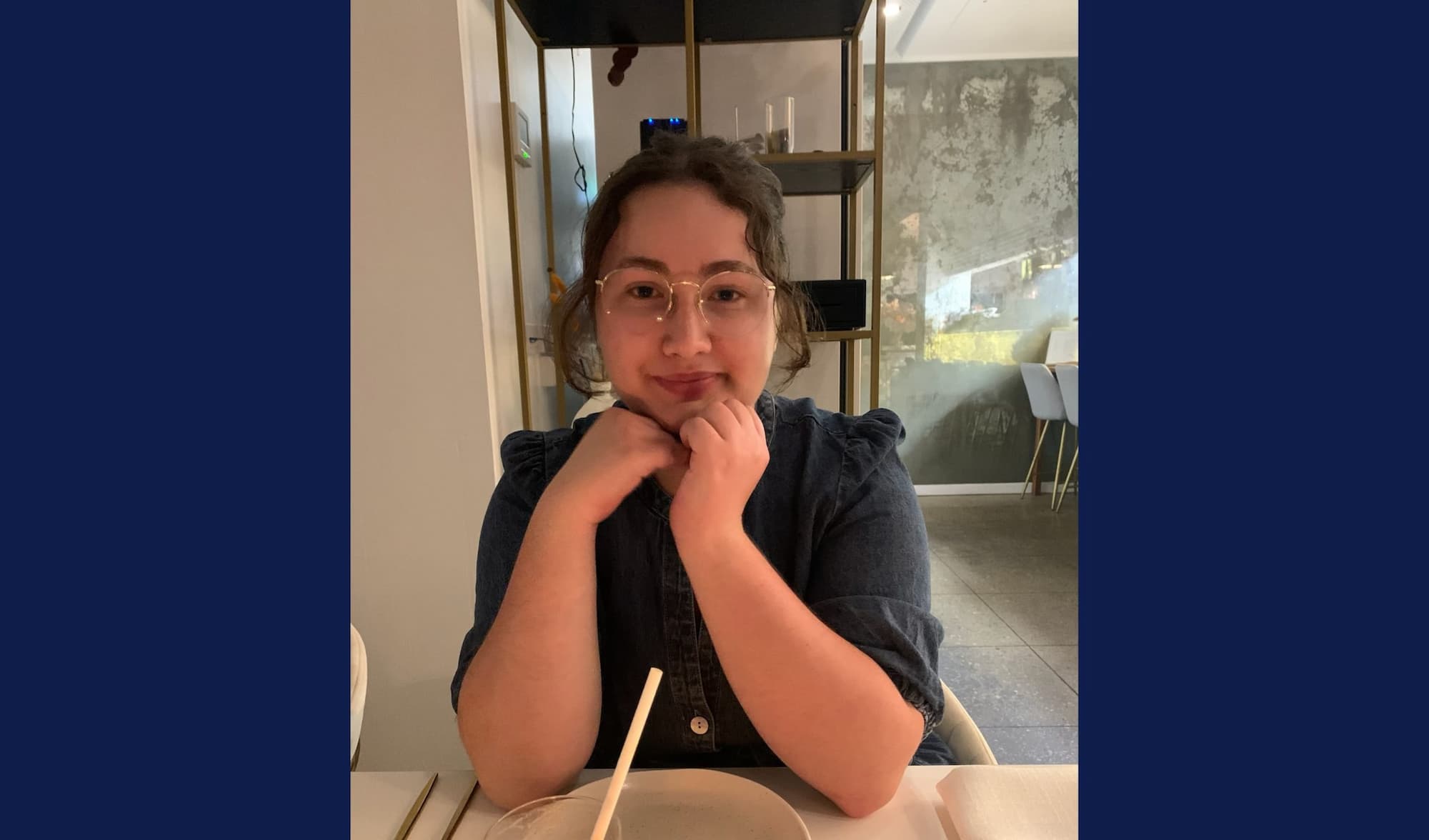Teagan
August 15, 2025

A year ago, Teagan was involved in a motor vehicle accident that left her with a traumatic brain injury (TBI) alongside multiple other injuries. She was placed into an induced coma to stabilise her and airlifted to hospital in a helicopter. Since then, Teagan has regained her independence — returned to driving, mobility, and education. Teagan shares her valuable advice on the tools and strategies that have helped her along the way.
Strength, balance and coordination
After her accident, Teagan’s goals focused on improving her strength, balance, and coordination which had been impacted by the TBI. Teagan’s physiotherapists over the course of the journey shaped exercises that she did routinely in her own time to help with this. Her local physiotherapist later recommended Pilates classes to further improve.
“This helped me significantly, because Pilates is low impact and focuses on controlled movements to improve range of motion and core strength,” Teagan said.
“Now that I’ve mostly recovered physically, I just do Pilates for fitness and fun.”
Getting started with study
Teagan found occupational therapy and speech pathology helped her the most when getting back to the practical tasks of study. To help her get ready for her Associate Degree of Allied Heath, her occupational therapy team arranged various exercises such as typing practice as well as planning and organising within hypothetical scenarios. They also helped organise a learning support plan by communicating with her university and helping her plan and communicate a degree pathway.
“The learning support plan helps me ask for adjustments, like more time for exams, completing exams in different rooms, or assessment extensions. The university has also provided me with other resources, such as Academic and Learning Support Advisors, that I can book appointments with to discuss concerns or ask for help,” Teagan said.
Teagan shared that working with a speech pathologist has been especially helpful in improving her memory, attention, and verbal expression, all of which were impacted by her TBI. Her speech pathologist placed Teagan in regular talk groups to assist with expressing thoughts and ideas verbally.
“My NIISQ-funded speech pathologist has been extremely helpful, especially during my study periods. I’ve been able to flexibly schedule my appointments via Zoom, which has made it much more practical while I‘m studying,” she said.
“The appointment activities are designed and focused on specific topics I’m learning at the time, which has helped consolidate my learning while improving my verbal expression, memory, and attention.”
Return to driving
One of Teagan’s proudest achievements post-injury was regaining her ability to drive. To help her achieve this goal, NIISQ funded driving lessons, a driving assessment with a specialised occupational therapist, eye specialist appointments and the prism glasses she needed to drive safely.
“Passing my driving assessment was a huge milestone because driving is such an essential part of life,” Teagan said.
“I lived outside of town at the time, started a part-time job; and was planning to go to university, meaning I would need to be able to take myself around the city.”
Teagan’s advice
Reflecting on her incredible progress, Teagan highlighted the power of persistence, small but deliberate actions, self-advocacy, and setting clear goals. By embracing small, consistent efforts and maintaining open communication with her support team, she has made progress she is proud of.
“I would recommend taking advantage of everything that is offered to help in your recovery and to actively push yourself that little bit further to achieve your goals. Pushing myself that little bit further in different aspects was one of the best things I could have done,” Teagan said.
“For example, during my stay at the rehabilitation unit, I used word search and finder booklets my parents gave me to help regain my neuroplasticity. After being discharged, my mum and I went on walks, even though it was uncomfortable at first. Over time, I regained my leg strength and endurance.”
Teagan also highlighted the importance of openly sharing her goals and aspirations with her support team.
“I actively expressed my desire to return to study and gain independence. This allowed my allied health team to tailor therapies to my goals,” she explained.
What’s next?
Teagan is now focused on building a future that allows her to give back to others. She has made significant progress towards her goals and is pursuing studies to become a speech pathology assistant.
“At the moment, I’m looking forward to continuing my studies and, after next year, receiving my Certificate IV and Associate Degree,” she said.
“By doing this, I can become a speech pathology assistant. I can hopefully make a difference for patients, like my past and current speech pathologists have done for me.”
Reflecting on her journey, Teagan expressed her gratitude for the support and assistance she has received throughout her rehabilitation.
“Overall, I’m the most pleased with how far I have come – from waking up in the hospital out of an induced coma with a severe TBI, to a year later studying at university with complete independence back,” she said.
“I am deeply thankful for all the support I have received since my injury and how much they have helped retrospectively. A huge thank you to my NIISQ support team for helping me along this journey.”
A big thank you to Teagan for sharing her experiences and advice with us!
Last updated: September 2025